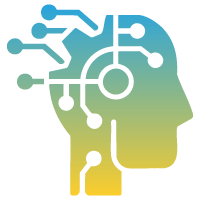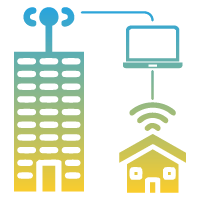The IT industry is evolving at an unprecedented pace, driven by rapid technological advancements and shifting workplace dynamics. As organizations strive to stay competitive in this fast-changing landscape, the demand for skilled IT professionals has never been higher. However, how businesses source, manage, and retain tech talent is undergoing significant transformation.
In 2025 and beyond, IT staffing trends are expected to be shaped by emerging technologies such as artificial intelligence, automation, and cloud computing. The rise of remote work, a focus on diversity, and the need for specialized skills are redefining hiring strategies. Companies are turning to innovative staffing solutions to navigate these changes, ensuring access to the right talent at the right time.
This blog explores key trends in IT staffing, offering insights into how businesses can prepare for the future while leveraging these shifts to build stronger, more agile teams.
Popular Trends in IT Recruitment to Watch in 2025
You can refer to the following parameters to make an informed decision.

AI and Automation
AI and automation tools are set to revolutionize recruitment by enhancing efficiency and accuracy. These technologies can automate tasks such as candidate sourcing, screening, and initial interviews, significantly reducing the time spent on manual processes. By leveraging data and algorithms, AI can identify the most qualified candidates, improve decision-making, and minimize human biases. This shift will allow recruitment teams to focus on strategic tasks while ensuring a more objective, streamlined, and practical hiring experience.

Remote and Hybrid Work Models
As remote and hybrid work models become the norm, companies will increasingly prioritize offering flexible work options to attract top global talent. This shift will be especially significant in tech roles, where digital collaboration tools enable seamless communication and project management across different time zones. The ability to work remotely will become a key factor in talent acquisition, allowing companies to access a wider pool of skilled professionals without geographical constraints, fostering diversity and innovation.

Diversity, Equity, and Inclusion (DEI) Initiatives
As organizations strive to build more inclusive and equitable workplaces, IT recruitment strategies will increasingly prioritize diversity. DEI initiatives will be integrated into the hiring process, ensuring that candidates from diverse backgrounds, including underrepresented groups, have equal opportunities. This shift aims to create a more inclusive environment that fosters innovation, collaboration, and a broader range of perspectives, which is particularly crucial in the tech industry. Promoting diversity will enrich company culture and enhance overall performance and creativity.

Upskilling and Reskilling
As technology evolves rapidly, companies will prioritize upskilling and reskilling initiatives to keep their workforce competitive. Training programs will focus on in-demand areas such as cloud computing, artificial intelligence, and cybersecurity, helping employees adapt to changing roles. IT recruitment will emphasize candidates willing to learn and grow, ensuring a talent pipeline that meets future technical demands. This trend will reduce skill gaps and foster long-term employee retention and growth.

Talent Pool Expansion Beyond Traditional Locations
In 2025, IT recruiters will increasingly look beyond established tech hubs to source talent from broader geographical locations. This includes targeting emerging markets with growing tech talent pools and areas with high unemployment rates where highly skilled professionals may be underutilized. By expanding the talent pool, companies can access diverse, untapped candidates, offering employers and job seekers opportunities. This approach helps meet skill demands while promoting economic growth in underserved regions.

Soft Skills Matter More
While technical expertise remains crucial, employers are placing greater emphasis on soft skills such as effective communication, adaptability, and collaboration. In 2025, these skills will be increasingly valued, especially in remote and hybrid work settings where teamwork often spans multiple locations and time zones. Strong interpersonal skills are essential for fostering effective virtual collaboration, problem-solving, and positive work culture. Candidates who can demonstrate emotional intelligence, flexibility, and leadership will be highly sought after in the evolving job market.

Blockchain and Decentralized Hiring
Blockchain technology will become a significant tool in IT recruitment, enhancing the verification of candidate credentials, ensuring transparency, and improving security in the hiring process. By leveraging blockchain, employers can confirm the authenticity of qualifications and work history without relying on third-party verification services. Additionally, blockchain can facilitate the creation of decentralized talent marketplaces, allowing employers and candidates to connect directly.

Contract-to-Hire and Gig Economy
As the gig economy expands, contract-based IT roles will become more prevalent, especially for projects requiring specialized skills for a set duration. The flexibility of these arrangements allows companies to quickly adapt to changing project needs without long-term commitments. Employers will increasingly adopt contract-to-hire models, allowing organizations and candidates to assess compatibility before making permanent decisions. This model provides greater agility and helps attract top talent for short-term or high-demand roles.

Candidate Experience as a Priority
As competition for top IT talent intensifies, companies will emphasize enhancing the candidate experience even more. Recruitment processes will prioritize clear and consistent communication, streamlined interview workflows, and personalized interactions at every stage. Key elements will include timely feedback, transparency about roles and expectations, and a welcoming, respectful environment. By offering a positive experience, companies can attract high-quality candidates and improve their employer brand, increasing their chances of retaining top talent in a competitive market.

Cybersecurity Talent Shortage
As cyber threats become more sophisticated and frequent, the demand for cybersecurity professionals will significantly outstrip supply. This shortage will drive IT recruitment to prioritize acquiring top-tier cybersecurity talent. Companies must offer competitive salaries, benefits, and growth opportunities to attract and retain skilled professionals. Also, ongoing training and development programs will become essential to keep employees up-to-date with the latest security technologies and trends, ensuring companies stay protected from emerging cyber threats.
Staying Ahead of Trends
IT staffing companies stay ahead of industry trends by adapting recruitment strategies to meet the evolving demands of the tech sector. They utilize advanced AI and machine learning technologies to streamline candidate sourcing and matching. They maintain a pool of qualified professionals by monitoring emerging fields such as blockchain and cybersecurity. Additionally, staffing firms focus on global talent acquisition, remote work opportunities, and prioritizing diversity, equity, and inclusion. Ongoing upskilling programs and flexible hiring models ensure they remain competitive and responsive to market shifts.




